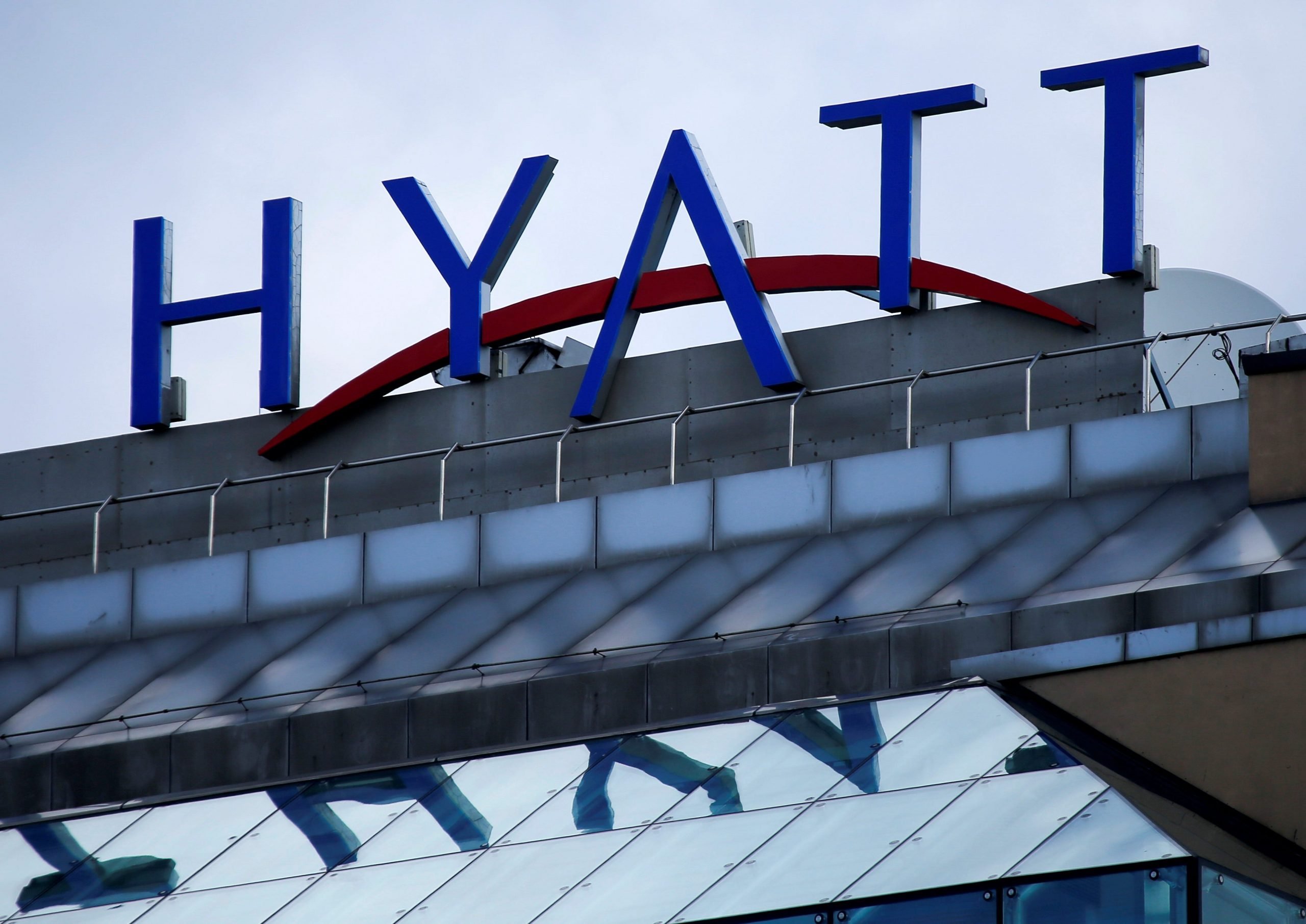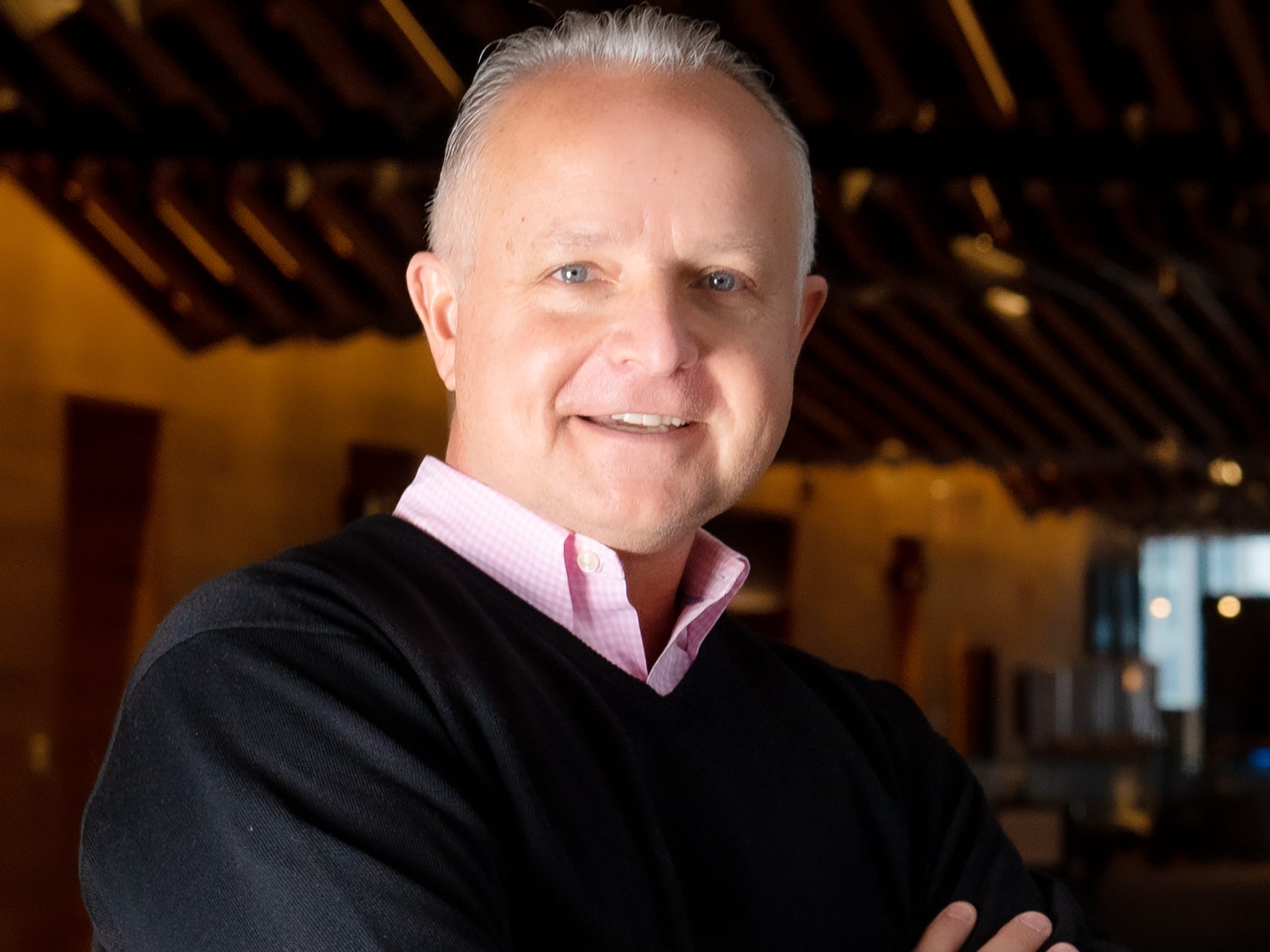
Maxim Shemetov/Reuters
- At Hyatt Hotels Corporation, Chief Commercial Officer Mark Vondrasek tackles business challenges.
- The pandemic hit Hyatt hard, with bookings down around 90% by April 2020, Vondrasek told Insider.
- Technology innovation and initiatives that resonate with guests have become key to Hyatt's recovery.
- This article is part of the "Innovation C-Suite" series about business growth and technology shifts.
During the COVID-19 pandemic, as occupancies quickly dropped into the single digits and bookings sank up to 90% by April 2020, hotel leader Hyatt's top priority was the safety and well-being of guests who still came to its properties.
But Hyatt's Chief Commercial Officer Marc Vondrasek says that his role, which was created to pull together all top-line revenue-generating and guest experience functions, was key to addressing the unprecedented business challenges of the pandemic.
"It allowed us to be more efficient, to ideate differently, and to drive personalization across our platform," Vondrasek told Insider. "The speed of change during COVID was something we had never seen."
Addressing consumer needs
The company quickly brought together a group of loyalty program members to talk in detail about offers that might address their needs. One member interrupted them a few minutes into the company's presentation: "She said, 'You're not listening to what's in front of me right now. I'm the mother of two school-aged kids, and I haven't left my home in weeks, and you're talking to me about a business trip,'" Vondrasek recalled. That led to the October 2020 launch of Work From Hyatt, which offered options to temporarily relocate to Hyatt resorts and receive everything from pet care and laundry services to workspaces.
Not only did Work from Hyatt deliver four times as much revenue as expected, but it has also served as an example of the company's ability to quickly pivot in response to customer needs, Vondrasek said. "Our speed to market was very fast," he explained. "From concept to execution, it was only 60 days."
Developing technology capabilities
Eventually, Hyatt focused on what technology-driven initiatives would really resonate with its guests. They found that digital options were particularly relevant around helping guests control their on-property experience, such as scheduling housekeeping, mobile food ordering, and seamless check-ins.
That desire for control and flexibility will likely continue long after COVID-19 concerns wane, Vondrasek said: "The ability to schedule different interruptions for your space is a good example of something that was born during this time but will live far past it."

Courtesy of Hyatt
Hyatt also used technology to target meeting planners who were desperately seeking to pivot to virtual or hybrid events. In April 2021, Hyatt debuted Together By Hyatt, which included a partnership with Swapcard, an integrated virtual and hybrid events platform that unifies on-site and virtual experiences and uses AI to enhance remote attendees' experience. Hyatt also focused on digital options to boost wellbeing during meetings such as guided stretching exercises from Hyatt experts, remote food and beverage offerings, and curated content from the meditation app Headspace.
"We had 1,200 bookings in July on this platform alone," Vondrasek said. "I think it's a nice example of technology that is not for technology's sake but that is really meeting people where they are at the moment."
Evaluating the takeaways
Overall, the pandemic made it clear that Hyatt needs to be comfortable with experimentation, Vondrasek added. For example, many market challenges change day to day - something that resonates in China one day can turn out to be the wrong solution two weeks later. "You have to be very willing to try a lot of initiatives, figure out what connects, and be comfortable in failure when they don't," he said. "Leaders need to be able to test and learn and be agile."
The organization also realized that gathering data will be more challenging going forward. For example, hotels often rely on seasonal data over the prior five years to understand what business will look like. "Over the past 18 months, traditional data inputs have been far less valuable," he said.
That means looking for non-traditional data sources to support decision-making: getting feedback from guests, listening to other travel partners, such as airlines, about what they are seeing, and gleaning insights from credit card spending trends.
"Looking at what people spend on things when they're not in our hotels can open up non-traditional partnerships, but you need the right data to point to those opportunities," he explained.
All of Hyatt's innovative technology efforts since the beginning of the pandemic have been tightly focused on getting closer to its customers - and being flexible as things change. "We're not an organization that has a scale advantage on our competitors," said Vondrasek. "We have to think about playing the game differently, and I think it means we listen more."

